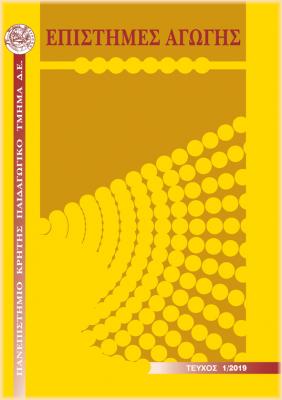The effect of handedness on the mechanical process of braille spelling
DOI:
https://doi.org/10.26248/.v2019i1.438Keywords:
Ηandedness, braille mechanics, spellingAbstract
Braille writing consists of the cognitive and the mechanical process, which are highly interrelated. The mechanical process pertains to the correct typing of the braille characters. The index, the middle finger and the right finger of both hands participate in this process. The present paper examined the potential effect of handedness on braille mechanics. Researchers initially assessed the spelling performance of 35 students with visual impairment and afterwards focused on the phonological type of errors, because in that case, the error can be attributed to fingers exclusively. The statistical analysis indicated that both right-handed and non-right handed students performed the same number of phonological errors. Although the right-handed made more mistakes with the left hand and the non-right-handed with the right hand, there was no statistically significant difference.


